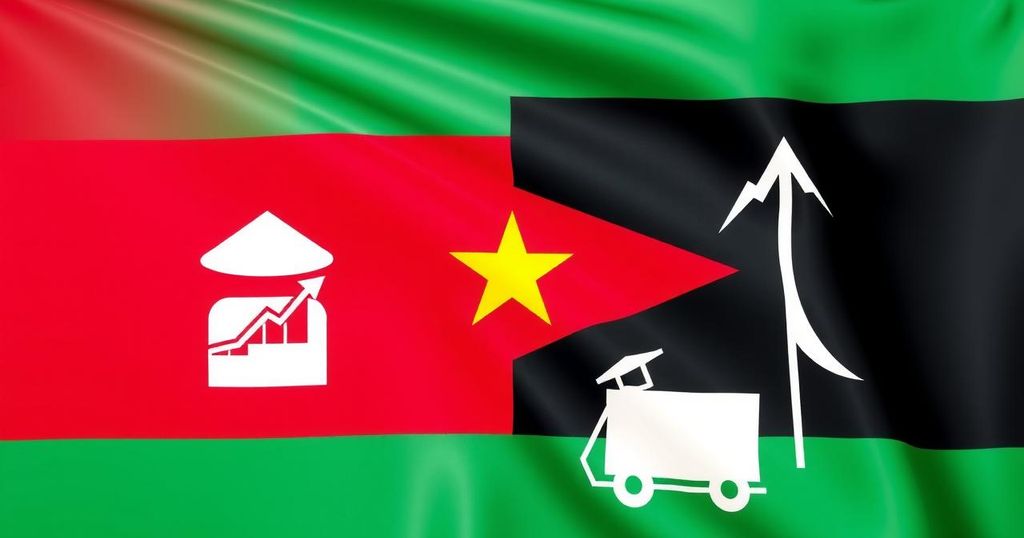South Sudan is experiencing severe economic and humanitarian crises due to conflict in Sudan, which halted oil production. This has led to decreased growth, increased inflation, and heightened food insecurity among the population. The government is facing fiscal constraints and has postponed elections originally slated for December 2024. Immediate international support is crucial for stabilizing the country’s economy and addressing the humanitarian disaster.
The Republic of South Sudan is currently facing significant macroeconomic challenges exacerbated by the ongoing conflict in Sudan. The destruction of a vital oil pipeline, which accounted for 70 percent of the nation’s oil exports, has led to drastic declines in economic growth, foreign exchange earnings, and government revenues. Consequently, South Sudan has encountered soaring inflation, a depreciating currency, and increased analysis of budget constraints. In response, the government has utilized salary deferrals and monetary financing while postponing essential currency adjustments. The humanitarian crisis has also intensified, with two-thirds of the population suffering from acute food insecurity, further worsened by flooding and an influx of refugees. In light of the deteriorating conditions, the national unity government announced a two-year postponement of upcoming elections, originally set for December 2024, under the terms of the peace agreement established in 2018.
The ongoing conflict in Sudan has critical implications for South Sudan’s economy and humanitarian conditions. With the disruption of a major oil pipeline since February 2024, the country has faced diminished production capabilities leading to reduced gross domestic product (GDP) growth and inflationary pressures. Coupled with existing humanitarian challenges, these developments necessitate urgent international attention and support as many citizens grapple with severe food shortages and economic instability. The prolonged conflict and subsequent policy challenges also cast doubt on the viability of scheduled democratic processes in the nation.
In summary, South Sudan is navigating a profound economic and humanitarian crisis stemming from external conflicts. The breakdown of oil exports has led to severe fiscal challenges, inflation, and growing food insecurity among its population. The deferral of elections symbolizes the government’s commitment to peace negotiations while highlighting ongoing domestic volatility. There is an urgent need for international aid and reform-oriented strategies to stabilize the situation and promote recovery.
Original Source: www.imf.org






